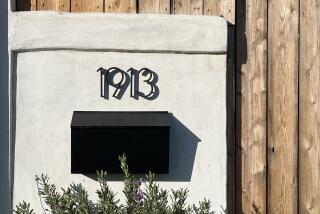U.S. Loses Bid to Dismiss AT&T; Surveillance Suit
A federal judge on Thursday allowed a lawsuit over domestic surveillance to proceed despite Bush administration arguments that revealing secrets in the case would open the country to terrorist attack.
The ruling by U.S. District Judge Vaughn Walker, in a privacy suit against AT&T; Inc. involving surveillance by the National Security Agency, rejected the government’s motion that the case be dismissed because of its “state secrets” privilege.
“While the court recognizes and respects the executive’s constitutional duty to protect the nation from threats, the court also takes seriously its constitutional duty to adjudicate the disputes that come before it,” Walker wrote in his ruling. “The compromise between liberty and security remains a difficult one. But dismissing this case at the outset would sacrifice liberty for no apparent enhancement of security.”
Walker based his decision partly on the fact that President Bush and other officials had spoken publicly about aspects of clandestine federal efforts to track suspected terrorists by monitoring the voice and data networks of AT&T; and other phone companies.
Bush, for example, has confirmed that the NSA listened without warrants to calls into and out of the U.S. involving suspected terrorists.
Thursday’s ruling raises the odds that at least some of the controversial spying programs will have their fates decided in court. It increases the stakes for a Senate bill that would send such legal disputes to a secret foreign surveillance court that historically considers only evidence that federal officials choose to present.
Walker’s decision applies only to a case filed in January by the Electronic Frontier Foundation, a civil liberties group that alleged AT&T; was violating federal privacy laws by helping the U.S. monitor calls and e-mails.
Foundation attorney Cindy Cohn said she hoped Walker’s order would make it more difficult for Congress to keep lawsuits out of open court. “We’re hoping that this will convince members of Congress that the government’s attempt to sweep all these cases into a secret court is not appropriate,” Cohn said.
Justice Department spokesman Charles Miller said, “We are reviewing the court’s ruling, and the government has made no decision as to what the next steps will be in the matter.”
The case cites not only news reports but testimony and documents from a former AT&T; employee in San Francisco, who says copies of all e-mail and digitized voice traffic through the company’s local switching office were also sent to a computer room controlled by the NSA.
Walker said that for now, he would not allow the plaintiffs to seek evidence about another reported surveillance program, which is said to give the spy agency access to billions of calling records. Such records include numbers dialed but not the content of the calls.
Because the government has neither confirmed nor denied such a program, it can more plausibly argue that the program’s alleged existence is a state secret, Walker wrote.
The judge also rejected an AT&T; motion, that he dismiss the case on the grounds that the company is immune to litigation over cooperation with government security initiatives. Walker cited an admission by one of the company’s attorneys that AT&T; could have refused a government request for information if it thought it was being asked to do something illegal.
Walker said he intended to appoint an expert to advise him on whether specific pieces of evidence should be kept from the public. He set an Aug. 8 court date for discussions on how to proceed and gave both sides permission to appeal his plan.
More to Read
Inside the business of entertainment
The Wide Shot brings you news, analysis and insights on everything from streaming wars to production — and what it all means for the future.
You may occasionally receive promotional content from the Los Angeles Times.








